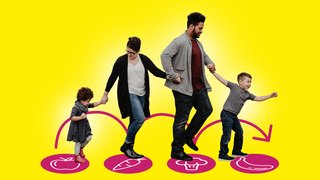Children's weight
"How much should my child weigh?" is a common question for parents. Our children are weighed regularly as babies, but as children grow and develop at different rates it's not always easy to tell if they are a healthy weight.
How to check your child is a healthy weight
For children and young people aged 2 to 18, you can check their weight by working out their body mass index (BMI) using the NHS BMI calculator.
A child's BMI tells us if their weight is right for their height, and the result is given as a centile (or percentile). For example, a healthy weight result is between the 3rd and 91st centile.
The BMI calculator takes into account age and sex, as well as height and weight.
If you are concerned about your child's weight or growth, contact a GP or school nurse.

School height and weight checks
Children are weighed and measured at school in Reception and Year 6 as part of the National Child Measurement Programme (NCMP).
Their height and weight are measured and used to calculate their body mass index (BMI). This information is used to plan and provide better services for children and families.

Very overweight
Very overweight children tend to grow up to be very overweight adults, which can lead to health problems.
If your child is very overweight, there's lots you can do to help them become a healthier weight as they grow. Getting them to be more active and eat well is important.

Overweight
More young children than ever are overweight, but it's not always easy to tell if toddlers and very young children are overweight.
As a parent, there's plenty you can do to help your child become a healthier weight, like getting them eating well and increasing their activity levels.

Healthy weight
If your child is already a healthy weight, there are lots of things you can do as a parent to help your child stay at a healthy weight as they grow.
Keep encouraging your child to eat well and move more, and they are more likely to stay a healthy weight.
You can also check their BMI every now and then using the NHS BMI calculator to make sure they stay in the healthy range.

Underweight
If you're concerned your child is underweight, take your child to see your GP. Low weight can occur for a number of reasons.
If there is a possible problem with your child's diet, your GP can give advice on what will help bring them up to a healthy weight, or refer your child to a dietitian.
You can check your child's height and weight to see if they have moved into the healthy range as they grow using the NHS BMI calculator.
Find out more:
6 ways to help your child with their weight
Small lifestyle changes can make a big difference – try these top tips.
1. Find some support
Speak to your child's school nurse, GP or practice nurse who will help support your family with diet and lifestyle changes if needed.
2. Make some healthier food swaps
There are lots of easy ways to cut back on sugar, salt and saturated fat – get started with our top tips and simple swaps.
4. Try some new recipes
Get inspiration to help your family eat well every day.
5. Get moving
Try boosting your family's activity levels in 10-minute bursts with our Disney inspired playalong games.
6. Less screen time, better sleep
Sitting around too much makes it more more likely your child will put on weight, and can affect how well they sleep. Sleeping well helps kids develop, stay healthy and perform better at school.

Sign up for Healthy Steps emails
Join today and track your progress over 8 weeks to help your family cut down on sugar, enjoy cooking together, get their 5 A Day and move more. Taking one small step after another soon adds up to a big difference!